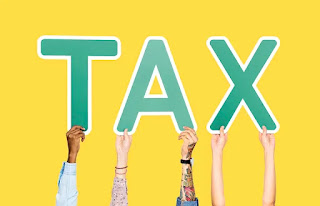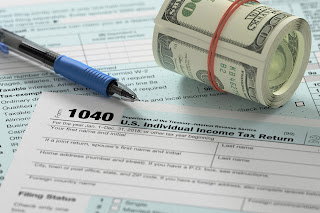Learn how to pay less tax legally and effectively. Maximize deductions, leverage tax credits, optimize investments, and stay informed. Save money now!
How to Pay Less Tax: Effective Strategies for Maximizing Your Tax Savings
.jpeg) |
How To Pay Less Tax |
Introduction
How to Pay Less Tax: 10 Actionable Tips
 |
Tips to Pay Less Tax |
1. Understand Your Tax Bracket
.jpeg) |
Understanding Tax Bracket |
Knowing which tax bracket you fall into is crucial for effective tax planning. Tax rates vary depending on income levels, and being aware of where you stand can help you strategize accordingly. The tax brackets for the current year can be found on the IRS website. By understanding your tax bracket, you can explore opportunities to reduce taxable income and take advantage of tax-saving options available to you.
2. Maximize Deductions
 |
Maximise Deduction |
3. Leverage Tax Credits
.jpeg) |
Leverage Tax Credits |
Unlike deductions, tax credits provide a dollar-for-dollar reduction of your tax liability. Familiarize yourself with various tax credits, such as the Earned Income Tax Credit (EITC), Child Tax Credit (CTC), and Education Tax Credits. These credits can significantly reduce the amount of tax you owe or even result in a refund. Check the IRS website to determine your eligibility and ensure you claim all applicable credits.
4. Contribute to Retirement Accounts
.jpeg) |
Contribute to Retirement Accounts |
Retirement accounts, such as 401(k)s and IRAs, offer excellent tax advantages. Contributions to these accounts are typically tax-deductible, reducing your taxable income for the year. Additionally, investment earnings within the account grow tax-deferred until withdrawal. Take advantage of these accounts to save for retirement while simultaneously reducing your current tax liability.
5. Consider Health Savings Accounts (HSAs)
 |
Consider Health Savings Accounts |
HSAs are another tax-advantaged tool worth exploring. If you have a high-deductible health plan, you may be eligible to contribute to an HSA. Contributions to an HSA are tax-deductible, and qualified withdrawals for medical expenses are tax-free. By utilizing an HSA, you can save for healthcare costs while enjoying immediate tax benefits.
6. Optimize Your Filing Status
 |
Optimize Your Filing Status |
7. Explore Tax-Efficient Investments
.jpeg) |
Explore Tax-Efficient Investments |
8. Take Advantage of Tax Loss Harvesting

Take Advantage of Tax Loss Harvesting
 |
Take Advantage of Tax Loss Harvesting |
Tax loss harvesting involves strategically selling investments that have experienced a loss to offset capital gains and reduce your overall tax liability. By carefully managing your investment portfolio, you can minimize taxes on your investment returns. However, it's important to consult with a financial advisor or tax professional to ensure you execute this strategy correctly.
9. Establish a Charitable Giving Plan
.jpeg) |
Establish a Charitable Giving Plan |
10. Stay Informed and Seek Professional Advice
 |
Stay Informed and Seek Professional Advice |
Frequently Asked Questions (FAQs)- How to Pay Less Tax
1. Can I really pay less tax legally?
Absolutely! The tax code is designed to allow individuals and businesses to reduce their tax liability through various deductions, credits, and tax-advantaged strategies. By understanding and utilizing these provisions effectively, you can legally minimize the amount of tax you owe.
2. What documentation do I need to support my deductions?
To support your deductions, it's essential to maintain proper documentation. This includes receipts, invoices, bank statements, and any other relevant records that substantiate your expenses. Keeping organized records will help ensure you can justify your deductions if audited by the IRS.
3. How can I determine my eligibility for tax credits?
The IRS provides detailed information about each tax credit on their website, including eligibility requirements. Review the specific criteria for each credit you're interested in, or consult a tax professional who can evaluate your eligibility based on your unique circumstances.
4. Are there any limits on retirement account contributions?
Yes, there are annual contribution limits for retirement accounts. These limits can vary based on the type of account and your age. Consult the IRS website or a financial advisor to determine the contribution limits that apply to your specific retirement accounts.
5. What are the consequences of incorrectly filing my taxes?
Incorrectly filing your taxes can lead to penalties, interest charges, or even an audit by the IRS. It's crucial to take the necessary precautions, review your tax return carefully, and seek professional advice if you have any uncertainties.
6. Is it worth hiring a tax professional?
Hiring a tax professional can be highly beneficial,
especially if you have complex tax situations or lack confidence in your own
tax knowledge. A qualified professional can help identify additional
opportunities to save on taxes, ensure compliance with the law, and provide
peace of mind during tax season.
Conclusion
How to Pay Less Tax: Taking Control of Your Finances
When it comes to paying less tax, individuals and businesses alike share a common goal. By implementing the strategies outlined in this guide on how to pay less tax and staying informed about changes in tax regulations, you can effectively optimize your tax planning and reduce your tax burden. Remember, it's essential to work within the boundaries of the law and seek professional advice when necessary. Take control of your taxes and keep more money in your pocket!